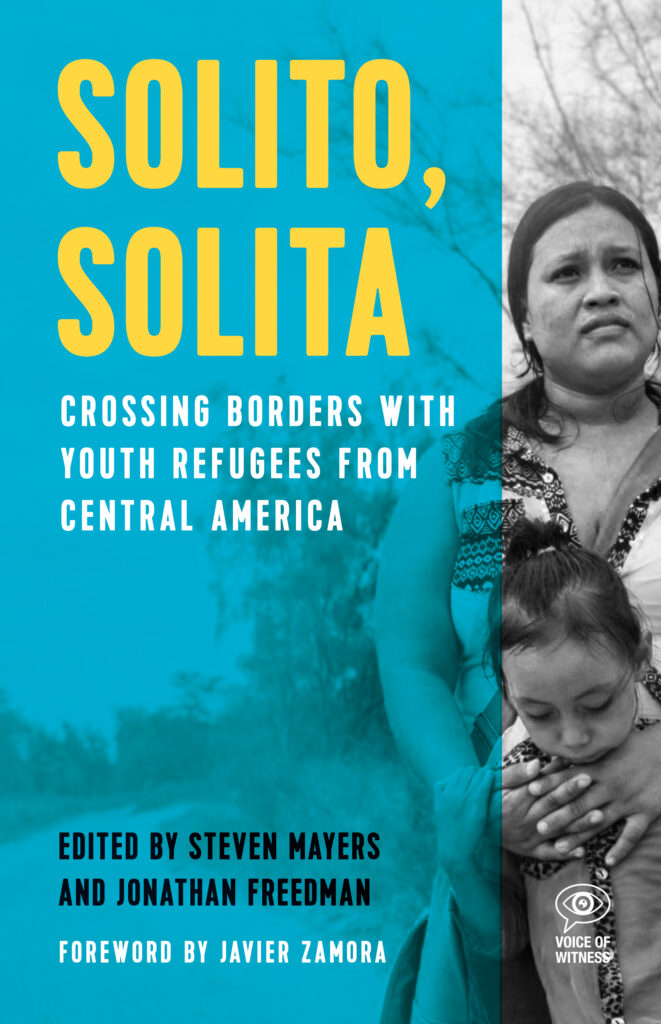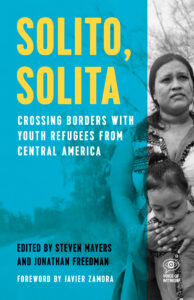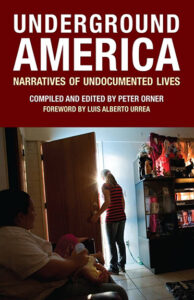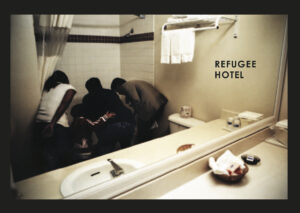The Voice of Witness book series amplifies the stories of people directly impacted by—and fighting against—injustice. We use an oral history methodology that combines ethics-driven practices, journalistic integrity, and an engaging, literary approach.
The books explore issues of inequity and human rights through the lens of personal narrative. Each project aims to disrupt harmful narratives by supporting historically marginalized or silenced communities to tell their own stories in their own words.
Book clubs are useful tools for engaging and interacting with these oral histories and the issues they highlight. Find our handout with guidance on planning and facilitating one here.
Use the questions below to start a book club for Solito, Solita: Crossing Borders with Youth Refugees from Central America.

Discussion Questions:
- The title of the book, Solito, Solita, is repeated by one of the narrators, Adrián Cruz, multiple times during his story. “Solito” means “alone” in Spanish. Throughout the book, narrators bring up this feeling of loneliness and isolation. What are some of the ways in which narrators express their isolation?
- Though many narrators talk about feelings of aloneness, there are also many ways in which the narrators are supported by case managers, therapists, lawyers, kind strangers, and shelters like the Casas del Migrantes. What is the short- and long-term impact of allies and compañeros on Central American refugees?
- Soledad Castillo says, “Many Americans think that we come here to take their jobs, to do bad things, to take advantage of the country.” Are there examples of this from your experience? How do the stories in Solito, Solita respond to that sentiment?
- Sexual abuse and violence are recurring issues described by many women in Solito, Solita. How can this issue be addressed on a community level? On a national and societal level?
- Julio Zavala’s narrative highlights the problem of youth who have been forced into gang life and violence by factors often beyond their control. As a result, they suffer various forms of trauma, including criminal records. What can be done to support people like Julio?
- Family is an important factor for many of the narrators. How does family affect the decisions of the narrators? What is the role of family in their lives?
- Gabriel Méndez discusses the struggles he faced because of his sexual orientation throughout his life and the colorism that one of his companions faced because of her dark skin during their journey to the US. How are the narrators impacted by the intersectionality of their identity?
- Central American refugees are often discussed with a deficit-mentality by politicians and in the media. Do the stories in Solito, Solita challenge this notion? If so, how? What are examples of strength and cultural wealth that you see amongst the narrators in the book?
- Narrators like Soledad and Gabriel describe their experiences as students in the United States. As of 2000, there are an estimated 2.5 million undocumented youth (under 18) living in the United States. What are some of the factors that impact their educational needs? What can schools do to support students like Soledad and Gabriel?
- Were there themes or ideas from Solito, Solita that surprised or challenged you? Has your understanding and perception changed about Central American migrants? If so, how?



